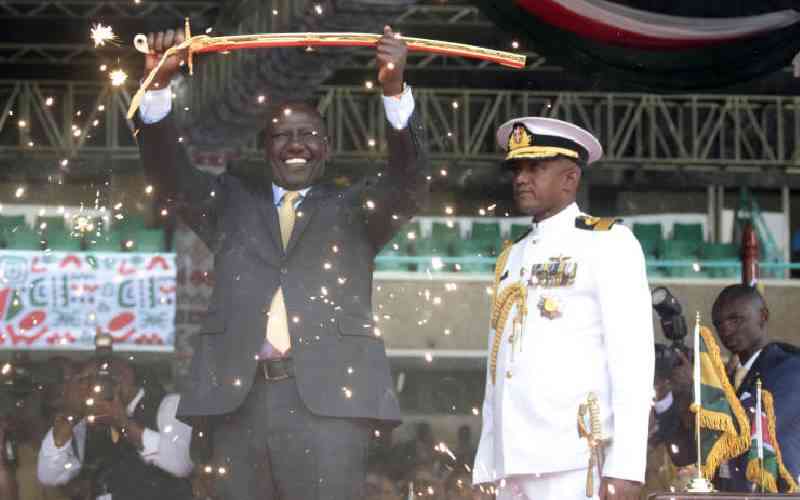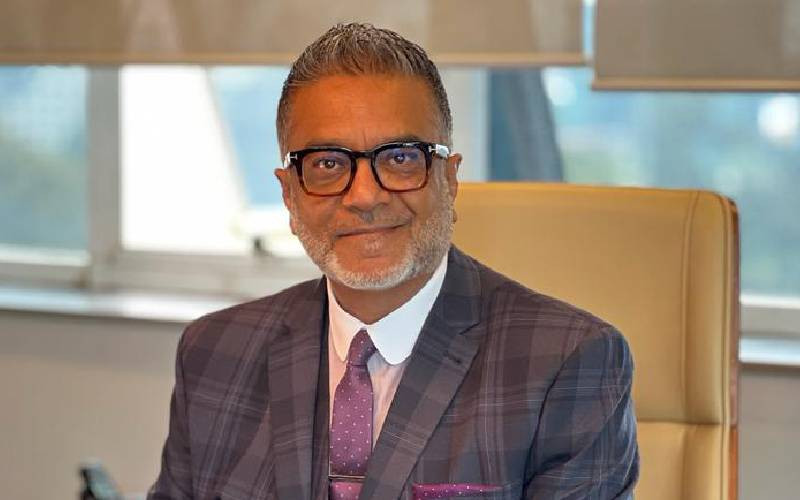
A few weeks ago our members of parliament got back to their usual self, perhaps they had pretended long enough, and awarded themselves huge house allowances and actually backdated them. This is not unusual and unfortunately, we are not going to run away from similar scenarios until we (ordinary Kenyans) decide to invest heavily in politics- both in time and in finances.
Our political system allows the political parties and politicians to disregard the voter. There is a lot that we never get a chance to see beyond the party slogans and campaign statements that occupy the airwaves during campaigns.
The logic of money-driven politics, which guides our political leaders, dictates that the voter is abandoned the moment the elected official is sworn into office and the interests of the major investors take over.
Elections represent a season when a group of investors re-group and invest to control our political system and once the season is over, just like any wise investor, they expect returns in terms of favourable policies being made to enable them advance their business if they are outsiders or make policies that will give them as much returns as possible if they are insiders.
This is as opposed to a normal democratic system where policies are made with the interests of the median voter in mind.
Handouts, handouts
We (the median voters) have never made an attempt to do background checks on the investors who are behind the politicians’ during the campaigns or the source of finances that are used during the campaigns. Our interest at this time is the handouts that we receive. Why are we only interested when they allocate themselves huge allowances to refill the sources in preparation for the next campaign?
The investment theory of party competition explains that after elections, politicians form blocs similar to investment blocs, that check on each other and they will oppose any policy that will benefit a rival bloc without the same trickling to their side regardless of the views of the voter. But, when the policies are beneficial to all blocs, they will adopt a common stand, just like during the salaries and allowances debate.
Equally, when the external investors are in agreement, then the leadership of the blocs will rally their members to support a policy even when it is clear it will hurt the median voter as was the case with the 8 per cent VAT on petroleum products. When the major investors do not have any interest in a policy, then we will not experience any form of vigorous debate on it.
Once the blocs get what is beneficial to all of them, they will embark on explaining to the public how sensible the policies are and how beneficial they will be for the economy and/or the welfare of their representatives.
Until the voters decide to invest and bear the cost of becoming informed about the public affairs and the kind of leaders they elect, there are little hopes that they will effectively be represented and served. Just like in any investment, if the median voter cannot invest in politics, then the political scene will be dominated by those who are willing to invest.
And the consequences are self-centered policies that will only benefit either the politicians or the major investors in the industry while hurting or making the median voter more vulnerable. With the Kenyan voters’ lack of interest in the political scene, especially after elections, political parties shift from being vote maximizers to groups of investors who will collect money and give nomination certificates to the highest bidder and then coalesce to field candidates who will stand strong for the investor forgetting about the voter.
These kind of leaders have mastered the art of playing public relations stunts that hoodwink the public to think that the leaders’ interest are similar to those of the public when they are not.
But how soon are we able to get out of this fix is unknown. The politicians have mastered the art of cheating us with all sorts of narratives including the common, “our community is being targeted.” This will go on until the voters stop being just voters and turn into stakeholders in the political system and gets involved in the day-to-day management of the governments at both levels. Until we start acting and changing the narrative “hawezi rudi 2022” to something better.
Stay informed. Subscribe to our newsletter
If we wait for 2022 they could have allocated themselves enough to re-invest in us and the offer will be irresistible and then it will be another five years wasted.
Mr Manani comments on social issues. [email protected]
 The Standard Group Plc is a
multi-media organization with investments in media platforms spanning newspaper
print operations, television, radio broadcasting, digital and online services. The
Standard Group is recognized as a leading multi-media house in Kenya with a key
influence in matters of national and international interest.
The Standard Group Plc is a
multi-media organization with investments in media platforms spanning newspaper
print operations, television, radio broadcasting, digital and online services. The
Standard Group is recognized as a leading multi-media house in Kenya with a key
influence in matters of national and international interest.
 The Standard Group Plc is a
multi-media organization with investments in media platforms spanning newspaper
print operations, television, radio broadcasting, digital and online services. The
Standard Group is recognized as a leading multi-media house in Kenya with a key
influence in matters of national and international interest.
The Standard Group Plc is a
multi-media organization with investments in media platforms spanning newspaper
print operations, television, radio broadcasting, digital and online services. The
Standard Group is recognized as a leading multi-media house in Kenya with a key
influence in matters of national and international interest.









